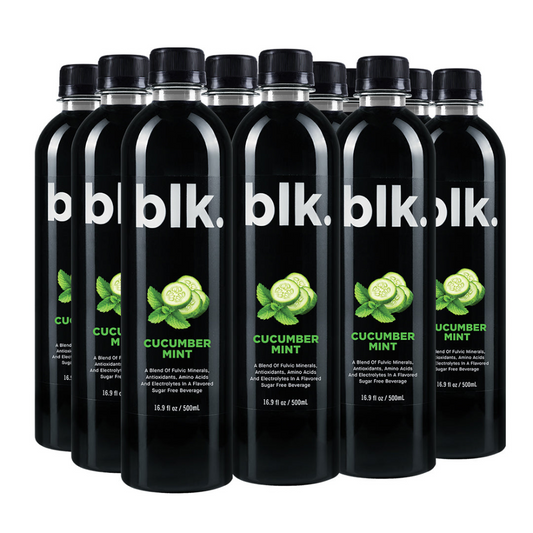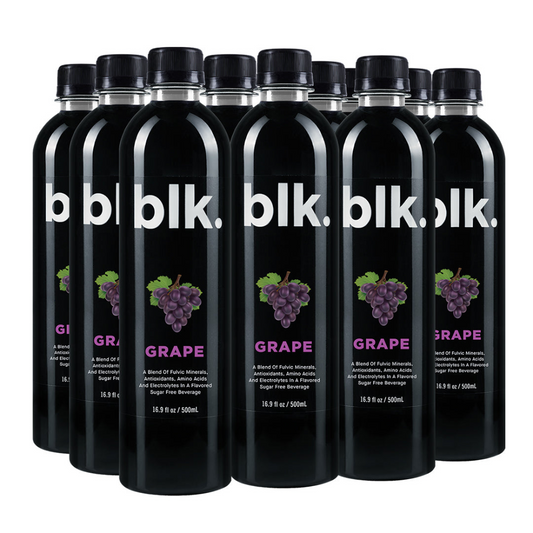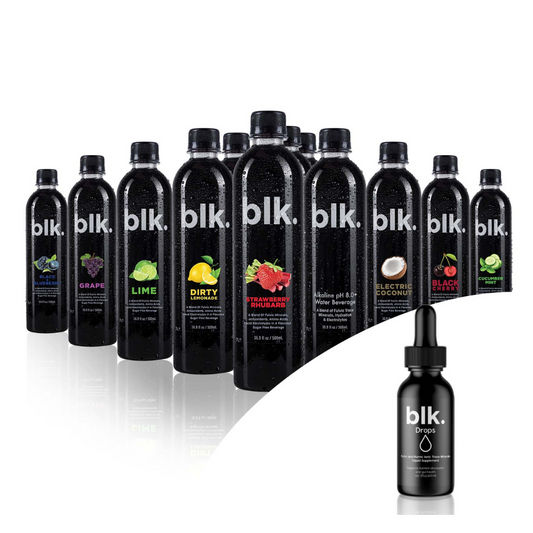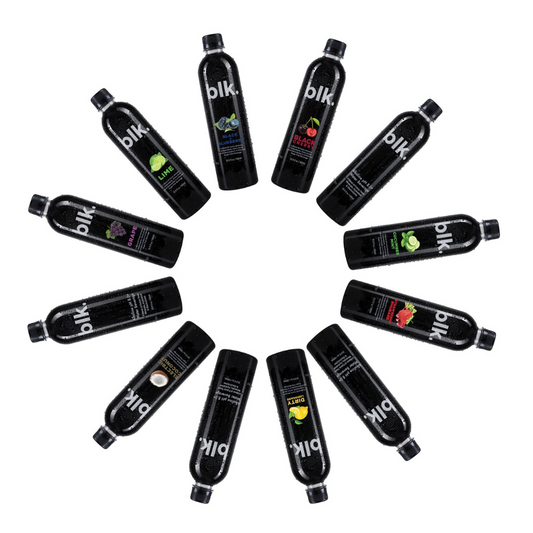
High-Protein Low Calorie Protein Bars to Lose Weight
This Article Seeks to Guide:
- What a low calorie protein bar is
- How protein bars help in weight loss.
- The different types of protein bars.
- How to choose the best protein bar.
- Common misconceptions about protein bars.
What are Protein Bars?
High-protein, low-calorie protein bars are snack or meal replacement options designed to provide a substantial amount of protein with minimal calories. These bars are formulated to support muscle growth, recovery, and overall health, while also helping individuals maintain or lose weight by promoting a feeling of fullness and providing essential nutrients. Protein bars in general are nutritional snacks that boost specific nutrients, mostly with high protein content and lower in carbohydrates, fats, fibers, and vitamins. They are a popular choice because they are a convenient source of nutrition and relatively easy to incorporate into our routines.
Although protein bars were initially intended to be a post-workout snack, they have recently been proven to be an efficient and healthy way of losing weight and suppressing hunger. They are made from high-protein animal and plant-based food sources and vary in taste, flavor, and texture depending on the brand.
How Protein Bars Can Help With Weight Loss
Many claim protein bars are an excellent way to cut weight, but how true is this statement? Does it work? We answer that yes, they do! Here are some ways protein bars may help your weight loss journey.
Overview of the Relationship Between Protein and Weight Loss
Protein is an essential nutritional need in a weight-loss journey because of its potential benefits as a satiety and appetite controller, metabolism booster, and altering the levels of weight-regulating hormones. Let's get more into the details.
Protein in Satiety and Appetite Control
Protein-filled diets keep you full for longer. This is because proteins take longer to digest, staying in the stomach and keeping you full longer. This means that you automatically cut down on your calorie intake. Studies had indicated that a drop of 441 calorie intake a day was shown to occur when there was an increase of 30% in protein intake. Reducing calorie intake is easier when using protein bars as an alternative snack.
Protein as a Metabolism Booster
During the digestion of protein, a lot of calories are burnt, estimated at 20-30%. This is referred to as the thermic effect of food(TEF). The high thermic effect boosts body metabolism, which burns more calories every time, including when asleep. Studies have also shown that increasing protein uptake may increase metabolism and help burn more calories, about 100 calories per day.
Protein in Altering the Levels of Weight-Regulating Hormones
The hypothalamus region of your brain controls every body response, including your weight. Protein alters your feeding habits by increasing appetite-reducing hormones GLP-1, peptide YY, and cholecystokinin and controlling the hunger hormone ghrelin. A reduction in appetite helps lower your calorie intake.
The Nutritional Value of Protein Bars for Weight Loss
We have already seen that protein plays a vital role in weight loss. The question remains whether protein bars meet the threshold for the correct protein content and whether the carbohydrates and fat content have to be low in protein bars.
Macro and Micronutrient Content of Protein Bars
Macronutrients are the nutrients we require in our diets in large quantities, including proteins, carbohydrates, and fats. Conversely, micronutrients are equally essential nutrients in our diets but are generally consumed in smaller amounts, and they include vitamins and minerals.
There are numerous protein bars available online, and you should pick one that aligns with your weight loss journey. Typically, protein bars with a high protein-to-carbohydrate ratio are the best choice for those looking forward to shedding some weight.
Protein Content in Protein Bar for Weight Loss
Although you can adequately get your protein needs from your typical diet, protein bars are a convenient way to add more protein. The first step would be to know your dietary needs regarding proteins. If you want a protein bar rich in protein, it should have at least 20 grams of protein.
Fat Content in Protein Bar for Weight Loss
You should reduce your fat intake as much as possible when trying to lose weight. When looking for a protein bar for weight loss, the fat content should not exceed 9 grams.
Carbohydrate Content in Protein Bar for Weight Loss
Carbohydrates are essential in our everyday lives and provide us with the necessary energy to carry on with our day. Therefore, the carbohydrate content should neither be too low nor too high; 15-20 grams of carbs should be good enough.
Different Types of Protein Bars for Weight Loss
There are many types of protein bars that you can choose from depending on your preference or perhaps dietary restrictions. Here are some of the most common protein bars.
Whey Protein Bars
Whey is one of the two proteins found in milk—alongside casein. It is made during the cheese-making process when the curd is separated from the milk; the liquid part is whey, which is dried and concentrated to produce whey protein powders. There are different forms of whey protein depending on how it is processed. They include whey protein concentrate, whey protein isolate, and hydrolysate. The concentrate is less processed and contains 40-80% of protein, the isolate is processed more, and the hydrolysate is isolated to a high percentage of 90%. Hydrolysate protein undergoes further processing to break down the protein into smaller peptides and free amino acids for easier digestion and absorption. Whey protein isolate is mainly used in protein bars because of its high protein concentration.
Although whey protein has been primarily used as a bodybuilding supplement, it has recently gained traction as an option for weight loss. However, you have to be wary of various whey protein bars because not all are similar in terms of ingredients and nutritional value.
Benefits of Whey Protein Bars for Weight Loss
Whey protein is an excellent source of protein because it has high protein content. The high protein keeps you satiated for more prolonged periods keeping you off calories and junk foods. Whey protein bars also boost your body's metabolism, helping you burn more calories.
Plant-Based Protein Bars
You probably already guessed right where plant-based protein bars are derived from. They are obtained from plants with high protein content, such as soybeans, peas, hemp, and brown rice. Soybeans, peas, and hemp are the most common plant-based protein sources because they are considered complete proteins. Complete proteins are proteins that have all essential amino acids which are helpful in our overall health and well-being.
Benefits of Plant-Based Protein Bars
There is a misconceived notion that purports that vegan protein bars(or plant-based protein bars) are less effective than animal-based protein. Nothing could be further from the truth, and Plant-based protein powders can be just as effective as animal protein powders with the same protein content. When looking for the best protein bars, what matters is not where the protein comes from but other ingredients in the product, such as added sugar, calorie, and carbohydrate content. If your fitness goal is to lose weight, you should avoid protein bars with extra sugar and high calorie, carb, and fat content.
Another advantage of plant-based protein over animal-based protein is that it has fewer allergic reactions than animal-based sources. Whey, for example, is derived from milk, and certain groups of people may have allergies, and milk also contains lactose that may cause digestive issues for some people.
Choosing the Right Protein Bars for Weight Loss
As mentioned before, protein bars come in different varieties with all shapes, textures, flavors, and nutritional values. You must always look at the ingredients list to see if they match your needs. Here are important factors you should consider while searching for the best protein bars for your weight loss journey.
Considerations When Selecting Protein Bars in Weight Loss
Nutritional Value
This is the most crucial aspect when choosing your protein bar. The protein bar must be nutrient-rich and laden with plenty of protein content. For weight loss, the protein bar should not be less than 20 grams of protein. The fat content should be in the single digits, and carbs should be less than 20 grams because you also need that energy from carbs to keep you going throughout the day.
Taste and Texture
Some like a chewy texture, while others prefer a pleasantly soft texture. The taste may vary depending on each product, so try several to find your needs.
Price and Availability
Again, plenty of products suit your needs according to your budget. Just scroll through some of the products, and you'll be sure to find one that fits your budget.
Brand Recognition
The brand of the manufacturer and vendors is vital when selecting protein bars. Always choose products from reputable brands that have been consistent in providing quality and safe supplements.
Reviews and Ratings
Customer reviews and ratings give valuable insights into the safety and quality of products. However, this parameter should only serve as a guide because reviews may have biases against or toward certain products, making them inaccurate.
Third-Party Testing
Third-party testing is done by other companies that ascertain the quality and safety of the supplements. The FDA does not regulate dietary supplements, but there are reputable organizations that perform third-party testing. They include NSF International, Consuemerlab.com, and US Pharmacopeia. Check for certification from these organizations to ensure you are getting quality supplements.
Factors to Avoid When Choosing Protein Bars
High Sugar Content
Many protein bars contain high sugar content made from sweeteners like corn syrup that, when taken in large amounts, may increase the risks of contracting complications like obesity, fatty liver, and diabetes.
High-Calorie Content
Weight loss involves burning many calories; therefore, you would want to avoid reversing all your gains by taking a protein bar with too many calories.
Artificial Sweeteners
Artificial sweeteners are not ideal because our bodies do not know how to digest them, and they only satisfy our sugar cravings, making us crave more. Always go for natural sugar, which the body knows how to metabolize.
How to Use Protein Bars for Weight Loss
Protein bars are easy to use, and you carry them anywhere. You can use them as meal replacements or take them in between meals. A meal replacement protein bar is a substitute for whole meals but has specific nutrient measures. Meal replacement bars should comprise all essential nutrients required by our bodies.
When taken between meals, protein bars help suppress hunger by keeping you full just before meals; therefore, you won't take in as many calories and carbs.
Protein bars can also be taken as an alternative snack, which is much healthier than your regular chocolate bars. It would boost you with the necessary nutrients while at the same time curbing your cravings for other unhealthy snacks.
Common Misconceptions about Protein Bars and Weight Loss
Many people have no idea what protein bars are all about. The information gap has caused some myths to be propagated, and people believe in them. Here are some of the misconceptions about protein bars.
All Protein Bars Are Created Equal
Protein bars come in all different shapes, sizes, textures, and nutritional values. Always check the ingredients list to ensure they satisfy your nutritional goals.
Protein Bars Will Automatically Make You Lose Weight
Losing weight is difficult, and resolving to protein bars won't do the magic overnight. You need to incorporate your diet with high protein intake and exercises specifically for losing weight. You should always look for ways to burn more calories than you consume; that way, you will lose weight.
Protein Bars Are Too Much Processed
There is a subtle difference between mechanical and chemical processing. Many protein bars are mechanically processed to fit all the ingredients into a tiny bar. This is utterly different from chemical processing which completely alters the chemical composition of the elements.
Protein Bars Should Only be Eaten After Workouts
Although protein bars have a wide range of benefits, including muscle gain, they are also valuable for weight loss and can be taken anytime between meals or in the morning to keep you full for longer hours. Always check on the ingredients to find out which protein bar is less processed and would be an excellent choice.
Conclusion
In summary, protein bars are an excellent choice to power you through your weight loss journey. We have seen the potential benefits of protein bars which include acting as an appetite suppressant and boosting the body's metabolism. There are many different protein bars in the market, all in different shapes, sizes, and nutritional values. Be sure to check the products' ingredients to ascertain which best suits you and avoid products you may be allergic to. Always consult your doctor before taking protein bars if you have any underlying medical conditions.
Frequently Asked Questions
-
What are the best high-protein, low-calorie protein bar options available on the market?
-
How do high-protein, low-calorie protein bars compare to regular protein bars in terms of nutritional value?
-
What ingredients should I look for in a high-quality high-protein, low-calorie protein bar?
-
Are there any specific allergens or dietary restrictions to consider when choosing a high-protein, low-calorie protein bar?
-
How can I incorporate high-protein, low-calorie protein bars into my weight loss or weight management plan?
-
Is it bad to eat protein bars at night?
-
Is it healthy to eat nothing but protein bars? What will happen if that's the only food you eat?
-
How many protein bars should I eat a day to lose weight?
-
What is the optimal time to consume a high-protein, low-calorie protein bar for maximum benefits?
-
Can high-protein, low-calorie protein bars be used as meal replacements or just as snacks?
-
Are there any potential side effects or concerns associated with consuming high-protein, low-calorie protein bars regularly?
-
How can I make my own high-protein, low-calorie protein bars at home using healthy ingredients?
-
How do I know if a protein bar is high in sugar or artificial sweeteners?
-
Are there any protein bars that are suitable for vegans or vegetarians?
-
What should I look for in a protein bar if I have specific dietary needs?
-
What is the recommended daily serving size of protein bars for weight loss?
-
Is it bad to eat protein bars at night?
-
Is it healthy to eat nothing but protein bars? What will happen if that's the only food you eat?




